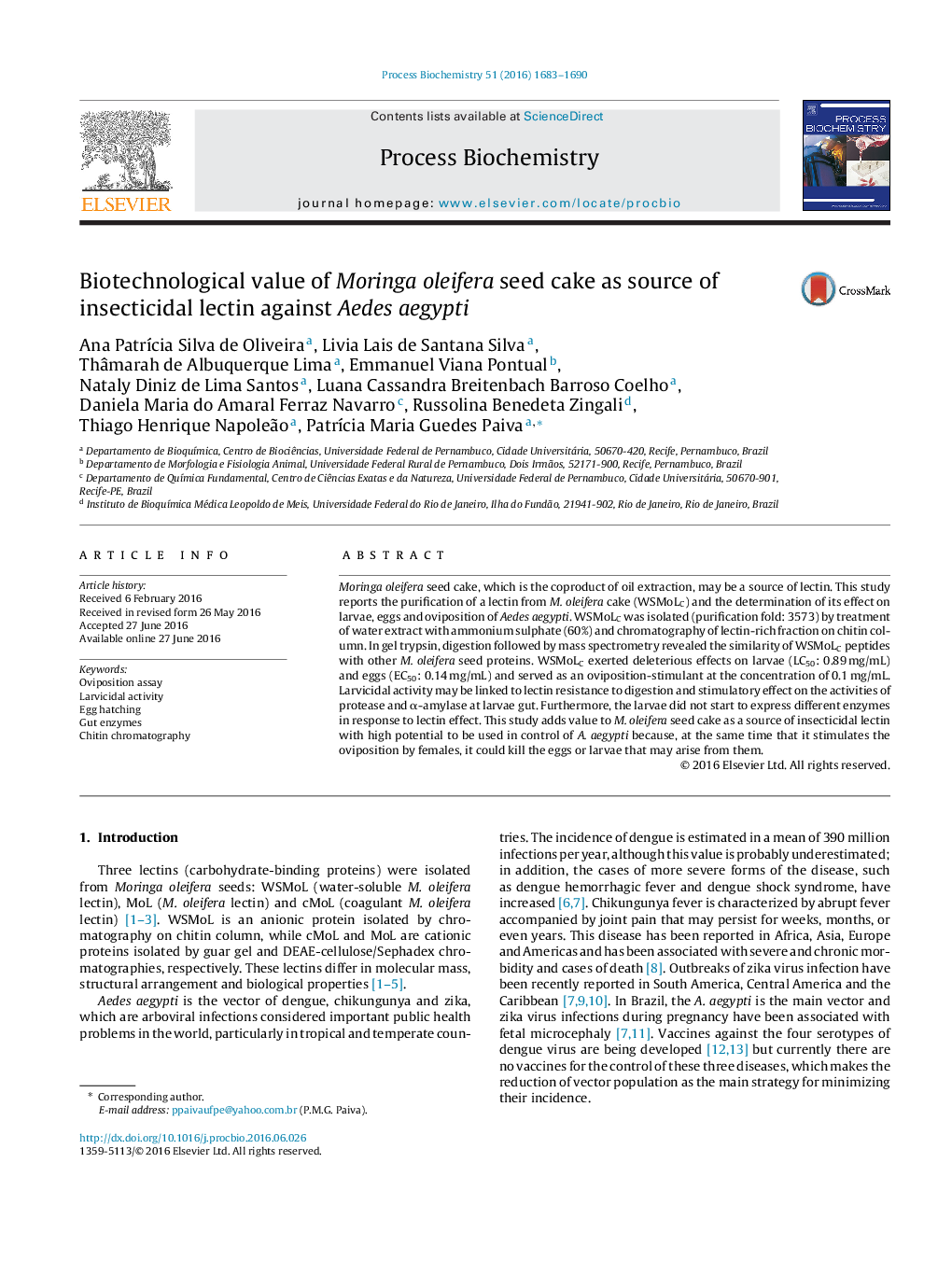| کد مقاله | کد نشریه | سال انتشار | مقاله انگلیسی | نسخه تمام متن |
|---|---|---|---|---|
| 6453074 | 1361514 | 2016 | 8 صفحه PDF | دانلود رایگان |

- Moringa oleifera seed cake, a coproduct of oil extraction, may be a source of lectin.
- A water-soluble lectin was isolated from M. oleifera cake (WSMoLC).
- The lectin showed larvicidal and ovicidal activities on Aedes aegypti.
- WSMoLC also showed oviposition-stimulant activity.
- This study adds value to M. oleifera seed cake as a source of insecticidal lectin.
Moringa oleifera seed cake, which is the coproduct of oil extraction, may be a source of lectin. This study reports the purification of a lectin from M. oleifera cake (WSMoLC) and the determination of its effect on larvae, eggs and oviposition of Aedes aegypti. WSMoLC was isolated (purification fold: 3573) by treatment of water extract with ammonium sulphate (60%) and chromatography of lectin-rich fraction on chitin column. In gel trypsin, digestion followed by mass spectrometry revealed the similarity of WSMoLC peptides with other M. oleifera seed proteins. WSMoLC exerted deleterious effects on larvae (LC50: 0.89 mg/mL) and eggs (EC50: 0.14 mg/mL) and served as an oviposition-stimulant at the concentration of 0.1 mg/mL. Larvicidal activity may be linked to lectin resistance to digestion and stimulatory effect on the activities of protease and α-amylase at larvae gut. Furthermore, the larvae did not start to express different enzymes in response to lectin effect. This study adds value to M. oleifera seed cake as a source of insecticidal lectin with high potential to be used in control of A. aegypti because, at the same time that it stimulates the oviposition by females, it could kill the eggs or larvae that may arise from them.
187
Journal: Process Biochemistry - Volume 51, Issue 10, October 2016, Pages 1683-1690